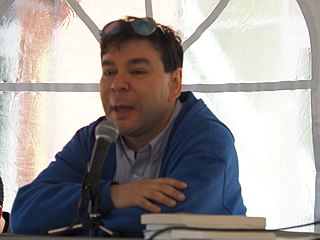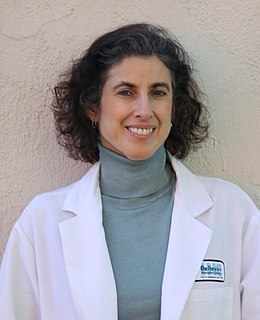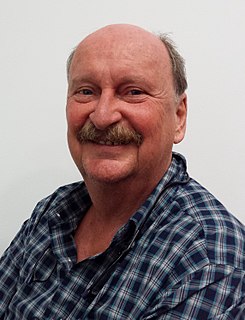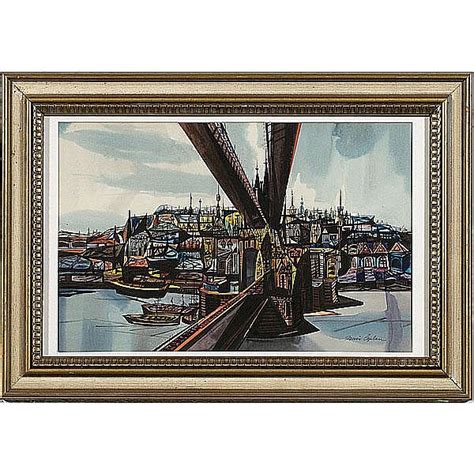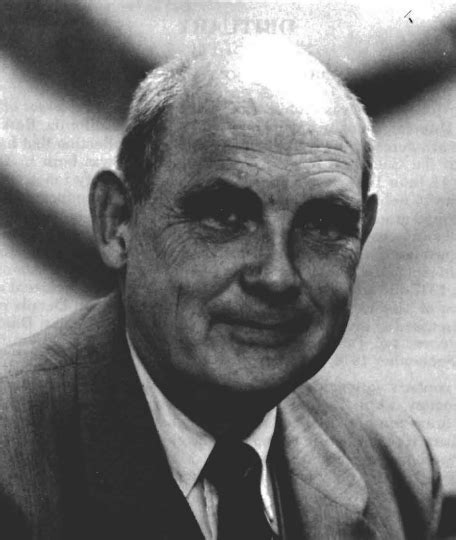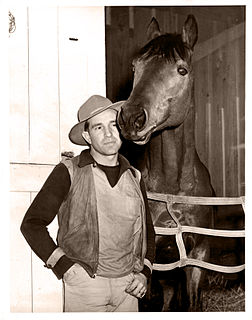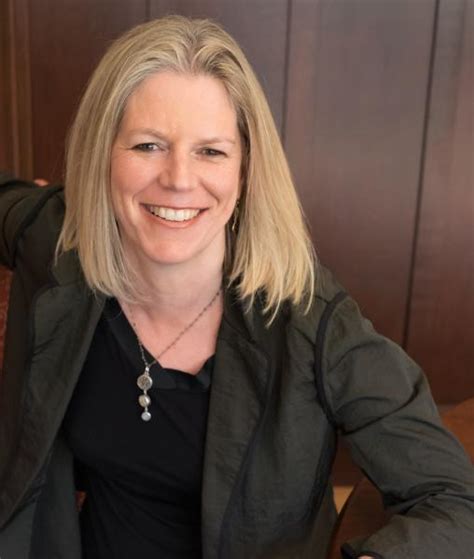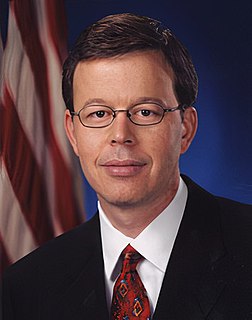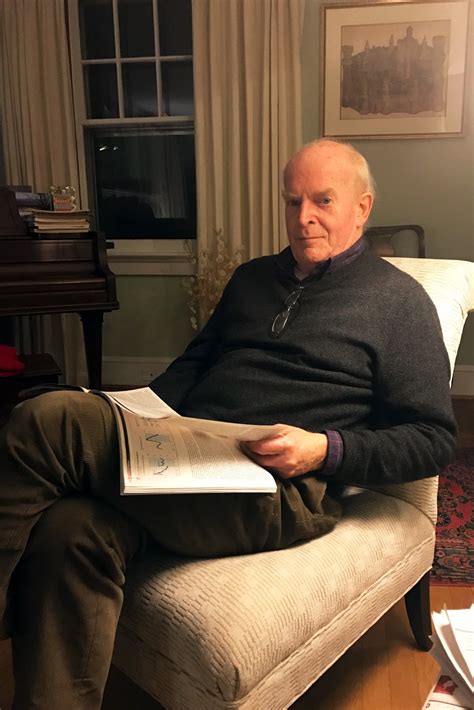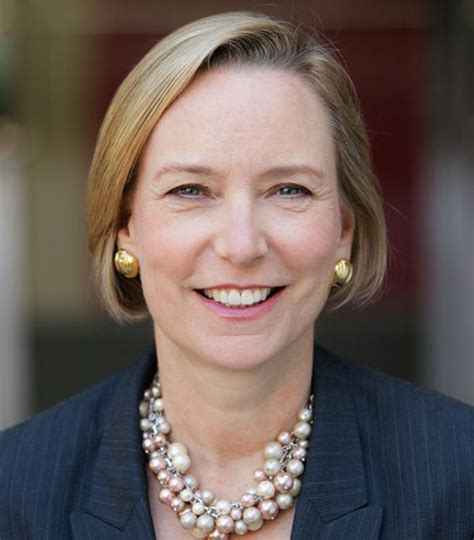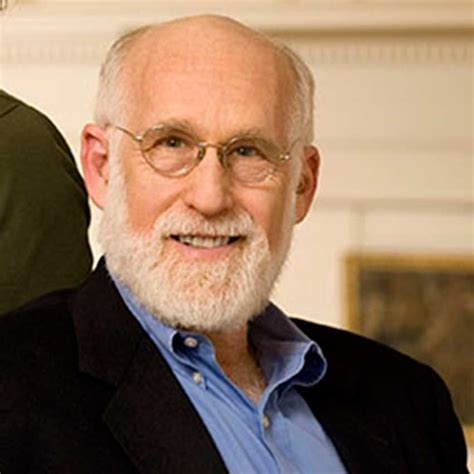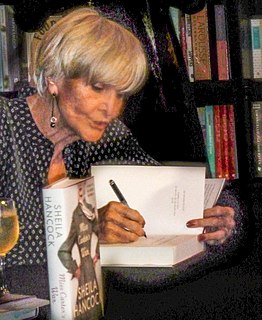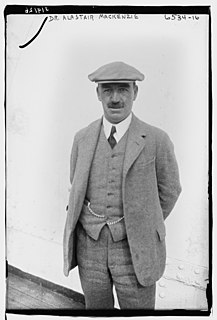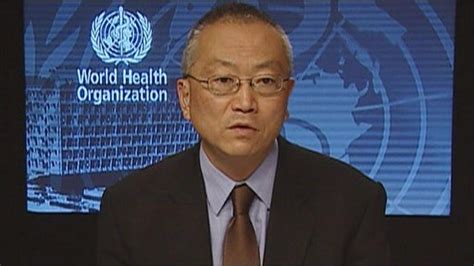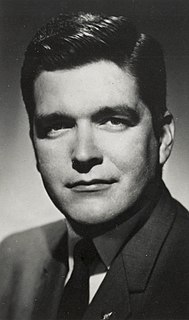Top 916 Patients Quotes & Sayings - Page 14
Explore popular Patients quotes.
Last updated on November 22, 2024.
Cancer has taught me a lot of things. Maybe it is the best thing that has happened to me. I can't say right now, but maybe some years down the line, I would realise. When I was taking chemotherapy, there were a lot of elderly patients, and that would inspire me. I thought, 'If they can be cured, why can't I be?'
Certainly miscarriage is not invariably related to low thyroid function. There are many other possible causes. Yet soon after thyroid therapy first became available, it was found that patients with a history of miscarriages often had a history compatible with thyroid deficiency and that full-term pregnancies might follow treatment with thyroid.
The epithet beautiful is used by surgeons to describe operations which their patients describe as ghastly, by physicists to describe methods of measurement which leave sentimentalists cold, by lawyers to describe cases which ruin all the parties to them, and by lovers to describe the objects of their infatuation, however unattractive they may appear to the unaffected spectators.
As a physician who was smoking a pack of cigarettes a day, getting drunk on weekends, stressed out about having 35 patients in the hospital, and not being able to help either them or myself, I had my existential crisis way before I met Maharishi. I did meet him and he was an influence, but I met many other people as well.
Sandeep Jauhar specializes in peeling back the veneer, revealing the discomfiting truths of today’s medical world. He is unafraid to dig deeply and honestly, both within himself and within the medical profession. Doctored raises critical questions that twenty-first-century medicine must answer if it is to meet the needs of its patients as well as of its practitioners.
We achieve active mastery over illness and death by delegating all responsibility for their management to physicians, and by exiling the sick and the dying to hospitals. But hospitals serve the convenience of staff not patients: we cannot be properly ill in a hospital, nor die in one decently; we can do so only among those who love and value us. The result is the institutionalized dehumanization of the ill, characteristic of our age.
All art that is not mere storytelling, or mere portraiture, is symbolic, and has the purpose of those symbolic talismans which medieval magicians made with complex colours and forms, and bade their patients ponder over daily, and guard with holy secrecy; for it entangles, in complex colours and forms, a part of the Divine Essence.
The notion that only those who preach the gospel of integrated medicine are able to perform the art of medicine is as ridiculous as it is insulting to everyone in healthcare who does his/her best to meet the needs of their patients. The assumption that unproven or disproven treatments become acceptable simply because they are often administered in a kind and caring fashion is quite simply not true.
Losing so many patients certainly was difficult, but it didn't make me feel like a failure as a physician, because I had learned that there was so much more to being a physician than curing illness. That's not the most important thing we do. The most important thing we do is enter into the suffering of others.
They say I'm young, but my purpose is the inspiration of a nation, innovation 'till I change the talk into a conversation. I'm like a doctor and my patients are anxiously waiting; healing all the hatin' that fakin' in the paper chasing. It's hard to live up to these expectations that I'm facing, and gain the admiration of an older generation. That's why I'm pacing back and forth, contemplatin' mediatatin', how to use what I've been taught is a positive force.
With so many mind-bytes to be downloaded, so many mental codons to be replicated, it is no wonder that child brains are gullible, open to almost any suggestion, vulnerable to subversion, easy prey to Moonies, Scientologists and nuns. Like immune-deficient patients, children are wide open to mental infections that adults might brush off without effort.
All patients reported a loss of craving for drugs while taking large doses of Vitamin C, during detoxification. Of the first 30 carefully monitored heroin addicts, 30 successfully withdrew from their addiction with no more than minor discomfort. None of the 30 were reported to have relapsed...Similar results have been reported by other doctors...:Archie Kalokerinos.
Life as a therapist is a life of service in which we daily transcend our personal wishes and turn our gaze toward the needs and growth of the other. We take pleasure not only in the growth of our patient but also in the ripple effect—the salutary influence our patients have upon those whom they touch in life.
To improve global health, it's not enough just to have a really good new product and to obtain marketing approval. You still need to market the product and bring it to patients, follow up, create the infrastructure, and so on - the whole pipeline, the network. That's something that companies are extremely good at: organizing a whole pipeline in a cost-effective way.
I initially became a trainer in 2002 to help people shape their bodies, to help them look the way they wanted to look. This would reflect the way I was living. I was focusing on the exterior. Then in 2003/4, I had a paradigm shift. I started a business for bariatric patients, pre- and post-gastric bypass.
If persons in the untreated...group die at any time in the study interval, they are reported...In the treated group, however, deaths which occur before completion of the treatment are rejected from the data, since these patients do not then meet the criteria...of the term 'treated'. The longer it takes for completion of the treatment,...the worse the error.
There's some debate as to whether you need to awaken from them because there are some patients who are actually starting to say, "I had these horrible nightmares, but I never woke up from them." But they can still recall them when they get up in the morning. So there's still some debate in the field.
Researchers and biotech executives foresee the day when the effects of many catastrophic diseases can be reversed. The damaged brains of Alzheimer's disease patients may be restored. Severed spinal cords may be rejoined. Damaged organs may be rebuilt. Stem cells provide hope that this dream will become a reality.
Will you resist the temptation to get a government handout for your community? Realize that the doctor's fight against socialized medicine is your fight. We can't socialize the doctors without socializing the patients. Recognize that government invasion of public power is eventually an assault upon your own business.
So if somebody has chronic pain, we want to manage the pain, but we still want to treat the insomnia separately. So what we'll tend to do in our sleep lab is we'll do a thorough evaluation and we usually have myself, who is a Psychologist and a Sleep Behavioral Sleep Specialist, I treat the patients first.
The gap between the inner and outer self is one I've found interesting, even essential, about the way we move through the world. In The Delivery Room, I enjoyed traveling back and forth between the perspectives of the patients and that of the therapist - with the irony that with your therapist, you are at least supposed to be your most authentic self.
Supported by digital data, new data-driven tools, and payment policies that reward improving the quality and value of care, doctors, hospitals, patients, and entrepreneurs across the nation are demonstrating that smarter, better, more accessible, and more proactive care is the best way to improve quality and control health care costs.
Physicians today, as human beings, are not exempt from the perverse economic pressures created by fee-for-service regimes to see more patients for shorter appointments and order more tests and procedures. If the incentives were changed to pay to foster better health outcomes, I am convinced physician behavior would change over time.
Most of the people who make decisions about global health are in the U.S. and Western Europe. There, the mental health care system is dominated by highly trained, expensive professionals in big hospitals, who often see patients over long periods of time. This simply can't be done in rural Africa or India. Who the hell can afford that kind of care?
The development of a strategic plan for cancer prevention in medical schools that is supported by all stakeholders - including the medical community, government, the insurance industry, cancer advocacy groups and all those dedicated to cancer prevention - will be the key to inspiring patients to live lifestyles that will decrease cancer risk.
The fact that the patients were complex human beings with a rich life beyond the hospital never really sank into the consciousness of the residents. Because they had no rich lives beyond the hospital, they assumed no one else did, either. In the end, what they lacked was not medical knowledge but ordinary life experience.
I always remind my team to take a step back and ask themselves, 'Why are we doing this?' For us, 100% of the time, it is to better serve our patients, consumers, and customers. This is a great question to come back to when your team is losing focus; it reduces stress and mobilizes people to get excited about the collective possibility.
People say the effect is only on the mind. It is no such thing. The effect is on the body, too. Little as we know about the way in which we are affected by form, by color, and light, we do know this, that they have an actual physical effect. Variety of form and brilliancy of color in the objects presented to patients, are actual means of recovery.
Perhaps love is a minor madness. And as with madness, it's unendurable alone. The one person who can relieve us is of course the sole person we cannot go to: the one we love. So instead we seek out allies, even among strangers and wives, fellow patients who, if they can't touch the edge of our particular sorrow, have felt something that cuts nearly as deep.
The freedom of patient speech is necessary if the doctor is to get clues about the medical enigma before him. If the patient is inhibited, or cut off prematurely, or constrained into one path of discussion, then the doctor may not be told something vital. Observers have noted that, on average, physicians interrupt patients within eighteen seconds of when they begin telling their story.
Ultimately the most profound problems with psychotherapy have always been that instead of possessing any contrarian or transcendent values to enable it to produce insights countervailing against our dysfunctional and incoherent and humanly destructive culture, its "therapists" have been virtually all shills or agents for this culture, trying to accommodate their patients to a fundamentally unhealthy and insane way of life.
One of the reasons why I, 'a medical man' decided to give up medicine was a firm conviction of the extraordinary influence on health of pleasurable excitement, especially when combined with fresh air and exercise. How frequently have I, with great difficulty, persuaded patients who were never off my doorsteps to take up golf, and how rarely, if ever, I have seen them in my consulting room again.
Big Pharma needs sick people to prosper. Patients, not healthy people, are their customers. If everybody was cured of a particular illness or disease, pharmaceutical companies would lose 100% of their profits on the products they sell for that ailment. What all this means is because modern medicine is so heavily intertwined with the financial profits culture, it’s a sickness industry more than it is a health industry.
We start with people who are motivated to get paid and be on TV, and we end up with people who have been transformed by the experience and go on to embrace sobriety. If they relapse, like most of my patients do, we continue to support and treat them. I'm thrilled that five out the eight [Celebrity Rehab cast members] showed up for after-care, and two more committed to coming back.
When health workers are infected at work, this puts other healthcare workers at risk, but also can be a risk to all other patients, understanding where the breach in these measures is occurring and taking the steps needed to fully implement infection prevention and control measures can put an end to these ... infections.
A smartphone links patients' bodies and doctors' computers, which in turn are connected to the Internet, which in turn is connected to any smartphone anywhere. The new devices could put the management of an individual's internal organs in the hands of every hacker, online scammer, and digital vandal on Earth.
I have found that when calculating what no one has calculated before, like my observing sessions on the mountain, my mental acuity peaks. Ironically, these are the times that I would flunk the reality check normally reserved for mental patients and dazed boxers: What is your name? What day is it? Who is the president of the United States?... I do not know, and I do not care. I am at peace with my equations as I connect to the cosmic engines that drive our universe.
The Bucket List is a movie about two old codgers who are nothing like people, both suffering from cancer that is nothing like cancer, and setting off on adventures that are nothing like possible. I urgently advise hospitals: Do not make the DVD available to your patients; there may be an outbreak of bedpans thrown at TV screens.
It [the pharmaceutical industry] is the most profitable industry in the world, and partially funds the US government. It surpasses oil in terms of profits and my country recently went to war due to oil pricing. What does that say they will do to keep this other industry in tact? It is up to patients and their families to question what they are being given, and to consumers to demand better, more natural alternatives.
The Pacific Yew can be cut down and processed to produce a potent chemical, taxol, which offers some promise of curing certain forms of lung, breast and ovarian cancer in patients who would otherwise quickly die... It seems an easy choice - sacrifice the tree for a human life - until one learns that three trees must be destroyed for each patient treated.
Dr. Lawrence Burton....in fighting cancer.(:) Many of his patients are now living normal lives after being told there was nothing more the conventional treatments could do for them, and that death was imminent....Why are Americans being forced to go off shore for treatment for cancer from an American doctor and for a program that was developed in America?
Towns are full of people, houses full of tenants, hotels full of guests, trains full of travelers, cafés full of customers, parks full of promenaders, consulting-rooms of famous doctors full of patients, theatres full of spectators, and beaches full of bathers. What previously was, in general, no problem, now begins to be an everyday one, namely, to find room.
You know, cancer is bipartisan. I mean, there are so many people whose lives are touched and changed by cancer that people are willing to work together to find cures, find solutions, make lives better for cancer patients. So I think people put politics aside. This isn't a political thing. This is a life issue.
Someone asked the Swiss physician & author Paul Tournier how he helped his patients get rid of their fears. He replied, 'I don't. Everything that's worthwhile in life is scary. Choosing a school, choosing a career, getting married, having kids--all those things are scary. If it is not fearful, it is not worthwhile.'
Psychoanalysis is often about turning our ghosts into ancestors, even for patients who have not lost loved ones to death. We are often haunted by important relationships from the past that influence us unconsciously in the present. As we work them through, they go from haunting us to becoming simply part of our history. (243)
What I learned from my work as a physician is that even with the most complicated patients, the most complicated problems, you've got to look hard to find every piece of data and evidence that you can to improve your decision-making. Medicine has taught me to be very much evidence-based and data-driven in making decisions.
I am convinced that unconditional love is the most powerful known stimulant of the immune system. If I told patients to raise their blood levels of immune globulins or killer T cells, no one would know how. But if I can teach them to love themselves and others fully, the same changes happen automatically. The truth is: love heals.
My daughter is a practicing physician so believe me I get a lot of the frustration from her. You get it from patients. For me personally, when I ask my doctor to send me my record, what I get is a scanned PDF of his hard copy! This is not good. It would be hopeless to work with a million people if you had to do this on paper, and one of the reasons this is the right time for this is because of the existence of EHRs.





